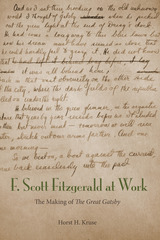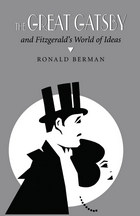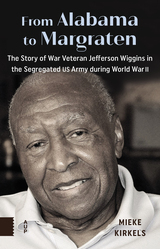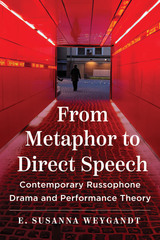
The essays in F. Scott Fitzgerald at Work examine fresh facts that illuminate the experiences and source materials upon which Fitzgerald based this quintessentially American masterpiece. They confirm author Horst Kruse’s view that Fitzgerald’s flights of fancy, even at their most spectacular, are firmly grounded in biographical experience as well as in the social, literary, and philosophical circumstances of his era.
In the first essay, Kruse reconstructs the life story of the individual who allegedly inspired the character of Jay Gatsby: Max von Gerlach. Kruse recounts his journeys to various archives and libraries in the United States as well as in Germany to unearth new facts about the genesis of the Gatsby characters. In another journey, readers travel with Kruse to Long Island to explore its physical and moral geography in relation to Fitzgerald, specifically the role of certain elite Long Island families in the advancement of the “science of eugenics” movement. The final two essays take Kruse across the globe to various destinations to consider the broader place of The Great Gatsby in American and international intellectual history.
Replete with fascinating discoveries and insights, F. Scott Fitzgerald at Work both corrects previous assumptions about The Great Gatsby and deepens our appreciation and understanding of Fitzgerald‘s imagination.

Great Gatsby was created--and challenges accepted interpretations of
Fitzgerald's greatest novel.
"The Great Gatsby" and Fitzgerald's World of Ideas
focuses on F. Scott Fitzgerald and the prevailing ideas and values
that permeated American society in the late teens and early twenties, providing
a vivid portrait of the intellectual and cultural milieu in which The
Great Gatsby was produced.
This new and original reading of Gatsby discloses
Fitzgerald's remarkable awareness of the issues of his time and his debt
to such philosophers and critics as William James, Josiah Royce, George
Santayana, John Dewey, Walter Lippman, H. L. Mencken, and Edmund Wilson.
Ronald Berman's fresh approach considers the meaning of various ideas important
to the novel: for example, those moral qualities governing both social
and individual life. Berman's reading of the text reveals extraordinary
emphases on matters that could productively be described as philosophical
-- the nature of friendship, love, and the good life. But the text of the
novel has many echoes, and the same concern with moral issues -- especially
those issues affecting democratic life - can be found in a number of other
texts of the first quarter of the century. Vigorously debated throughout
Fitzgerald's own lifetime, these texts shed a completely new light on the
idealism of The Great Gatsby and on the penetrating view it has
of life in a new form of American democracy.
A noted Fitzgerald scholar, Berman makes it clear that
accepted interpretations of The Great Gatsby and of Fitzgerald's
work in general must be changed. Berman demonstrates that Fitzgerald wrote
within a vast dialectic, relating the ideas of the twenties to those of
the "old America" described in so many of his works. Gatsby, Nick Carraway,
and the other characters of Fitzgerald's greatest novel all have to consider
not only their relationship to the present but also their distance from
what was once a highly meaningful past.

work. If Fitzgerald could have wished for one reader of The Great Gatsby,
it would have been Ronald Berman. Berman's criticism creates an ideal
companion piece to the novel--as brilliantly illuminating about America
as it is about fiction, and composed with as much thought and style."
-- Roger Rosenblatt
"An impressive study
that brilliantly highlights the oneness of Fitzgerald's art with the overall
context of modernism." -- Milton R. Stern, author of The Golden
Moment: The Novels of F. Scott Fitzgerald
"Citing films, dates,
places, schedules, Broadway newsstands, and the spoils of manufacture,
the author, never lapsing into critical jargon, locates the characters
in 'the moving present.' Gatsby, the first of the great novels
to emerge from B movies, uses the language of commodities, advertisements,
photography, cinematography, and Horatio Alger to present models of identity
for characters absorbed in and by what is communicated. . . . Berman concludes
that Gatsby 'reassembled' rather than 'invented' himself."
-- A. Hirsh, Choice
READERS
Browse our collection.
PUBLISHERS
See BiblioVault's publisher services.
STUDENT SERVICES
Files for college accessibility offices.
UChicago Accessibility Resources
home | accessibility | search | about | contact us
BiblioVault ® 2001 - 2025
The University of Chicago Press






![From Unincorporated Territory [åmot]](https://www.bibliovault.org/thumbs/978-1-63243-118-9-thumb.jpg)


